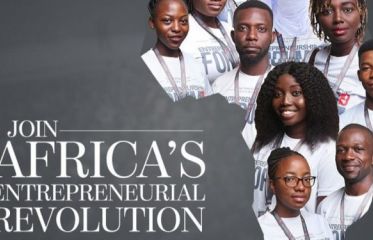I am a
student
institution
career professional
I need help with
Career Selection & Planning
Find your best-fit career, stream, course or college through advanced assessments and expert guidance.
college applications
Get admits from your dream colleges through end-to-end applications guidance for overseas and liberal arts universities.
I am interested in
Career Development Programs
State-of-the-art career assessments, expert guidance, and more to help students plan their career paths.
Career Advancement Programs
Expert-led MUN training programs, inspirational career talks and more to help students get that added edge.
I am interested in
Getting Certified (ICCC)
Become an International Certified Career Coach through a multi-level credentialing program by Mindler & CDA (USA).
Partnering with Mindler
Expand and grow your career counselling practice by leveraging the full force of Mindler’s career guidance platform.
Ready to discover your perfect career?
Enter your email id to take the Orientation Style test for free.
CAREER COUNSELLING PROGRAMS
Class 8-9
Stream & Subject SelectionAdvanced assessment & personalised guidance to help you select the perfect stream and subjects that align you to the right careers.
Class 10-12
Career Selection & PlanningExpert guidance & 5-dimensional assessment to help you discover your perfect career and choose the right course and college.
Graduates
Career Selection & Development5-dimensional assessment & superior guidance to help you discover your perfect career and choose the best next step.
Thank you for contacting us!
One of our team members will respond in 2 working days to resolve your query. If your query is urgent, you can alternatively call our career helpline.
Ready to pave your way to your dream college?
Leave your details below and we will get in touch shortly.
COLLEGE APPLICATION PROGRAMS
Overseas Application
End-to-end overseas admissions guidance to help you build the perfect applications for your target universities.
Liberal Arts Application
Comprehensive guidance and personalised application development for admissions to Liberal Arts programs.
Thank you for contacting us!
One of our team members will respond in 2 working days to resolve your query. If your query is urgent, you can alternatively call our career helpline.
Ready to give students the best of career guidance?
Leave your details below and we will get in touch shortly.
Career Development Programs
Career Development &
Planning Ecosystem
State-of-the-art assessment & end-to-end career guidance to help students discover their perfect career.
Thank you for contacting us!
One of our team members will respond in 2 working days to resolve your query. If your query is urgent, you can alternatively call our career helpline.
Ready to give your students the added edge?
Leave your details below and we will get in touch shortly.
Career Advancement Programs
MUN Training Program
Expert-led training and comprehensive guidance sessions to help students excel at MUN conferences.
Mindler Talks
Career awareness and inspirational talks for students with professionals who have achieved success in their fields.
Thank you for contacting us!
One of our team members will respond in 2 working days to resolve your query. If your query is urgent, you can alternatively call our career helpline.
Ready to upgrade your career counselling skills?
Enter your email id to start your ICCC application.
Getting Certified (ICCC)
International Certified
Career Coach (ICCC)
A 3-month program with emphasis on global practices, experiential learning & career guidance tools.
Thank you for contacting us!
One of our team members will respond in 2 working days to resolve your query. If your query is urgent, you can alternatively call our career helpline.
Ready to grow as a counsellor?
Leave your details below and we will get in touch shortly.
Partnering with Mindler
Mindler Partner Program
World-class career assessment platform & tools to help you scale up your career counselling practice.
Thank you for contacting us!
One of our team members will respond in 2 working days to resolve your query. If your query is urgent, you can alternatively call our career helpline.
Breaking News
- Flexible Remote Work Opportunity for University Students: Earn $100–$250 Per Month ...Read More
- Ministry of Education and Sports Azerbaijan Government Scholarships For 2025-2026 Academic Year ...Read More
- Government Sponsorship Undergraduate Admission Lists 2025-26 for Makerere University ...Read More
- Ministry of Education And Sports: Egyptian Government Scholarships 2025-2026 Academic Year ...Read More
- Ground Breaker Full Scholarship for girls to study Software Engineering 2025 July Intake ...Read More
- Tony Elumelu Foundation Entrepreneurship Programme (TEEP) 2025 for young African Entrepreneurs ...Read More
- DESIGNING FUTURES 2050 International Design Competition 2025 (€15,000 prize) ...Read More
- Ground Breaker Full time Scholarship for girls to study Software Engineering 2025 Intake ...Read More
- Ministry of Education And Sports Algerian Vocational Training Scholarships for 2024-2025 AY ...Read More
- Ministry of Education and Sports Advert for the Algerian Government Scholarships for 2024-2025 ...Read More
Debt collector
pursues payments of debts owed by individuals or businesses. Most collection agencies operate as agents of creditors and collect debts for a fee or percentage of the total amount owed
Add to FavouritesTasks
1. Arrange for debt repayment or establish repayment schedules, based on customers' financial situations.
2. Locate and notify customers of delinquent accounts by mail, telephone, or personal visits to solicit payment.
3. Advise customers of necessary actions and strategies for debt repayment.
4. Persuade customers to pay amounts due on credit accounts, damage claims, or nonpayable checks, or to return merchandise.
5. Confer with customers by telephone or in person to determine reasons for overdue payments and to review the terms of sales, service, or credit contracts.
6. Locate and monitor overdue accounts, using computers and a variety of automated systems.
7. Answer customer questions regarding problems with their accounts.
8. Record information about financial status of customers and status of collection efforts.
9. Trace delinquent customers to new addresses by inquiring at post offices, telephone companies, credit bureaus, or through the questioning of neighbors.
10. Sort and file correspondence and perform miscellaneous clerical duties, such as answering correspondence and writing reports.
11. Perform various administrative functions for assigned accounts, such as recording address changes and purging the records of deceased customers.
12. Receive payments and post amounts paid to customer accounts.
13. Contact insurance companies to check on status of claims payments and write appeal letters for denial on claims.
14. Notify credit departments, order merchandise repossession or service disconnection, and turn over account records to attorneys when customers fail to respond to collection attempts.
15. Negotiate credit extensions when necessary.
Key knowledge areas
1. Customer and Personal Service — Knowledge of principles and processes for providing customer and personal services. This includes customer needs assessment, meeting quality standards for services, and evaluation of customer satisfaction.
2. Clerical — Knowledge of administrative and clerical procedures and systems such as word processing, managing files and records, stenography and transcription, designing forms, and other office procedures and terminology.
3. English Language — Knowledge of the structure and content of the English language including the meaning and spelling of words, rules of composition, and grammar.
4. Mathematics — Knowledge of arithmetic, algebra, geometry, calculus, statistics, and their applications.
5. Computers and Electronics — Knowledge of circuit boards, processors, chips, electronic equipment, and computer hardware and software, including applications and programming.
6. Law and Government — Knowledge of laws, legal codes, court procedures, precedents, government regulations, executive orders, agency rules, and the democratic political process.
Skills
1. Active Listening — Giving full attention to what other people are saying, taking time to understand the points being made, asking questions as appropriate, and not interrupting at inappropriate times.
2. Speaking — Talking to others to convey information effectively.
3. Social Perceptiveness — Being aware of others' reactions and understanding why they react as they do.
4. Persuasion — Persuading others to change their minds or behavior.
5. Critical Thinking — Using logic and reasoning to identify the strengths and weaknesses of alternative solutions, conclusions or approaches to problems.
6. Negotiation — Bringing others together and trying to reconcile differences.
7. Reading Comprehension — Understanding written sentences and paragraphs in work related documents.
8. Coordination — Adjusting actions in relation to others' actions.
9. Writing — Communicating effectively in writing as appropriate for the needs of the audience.
10. Judgment and Decision Making — Considering the relative costs and benefits of potential actions to choose the most appropriate one.
11. Complex Problem Solving — Identifying complex problems and reviewing related information to develop and evaluate options and implement solutions.
12. Monitoring — Monitoring/Assessing performance of yourself, other individuals, or organizations to make improvements or take corrective action.
13. Service Orientation — Actively looking for ways to help people.
14. Time Management — Managing one's own time and the time of others.
-
 Tony Elumelu Foundation Entrepreneurship Programme (TEEP) 2025 for young African Entrepreneurs
Entrepreneurship Program For African Business Owners
Tony Elumelu Foundation Entrepreneurship Programme (TEEP) 2025 for young African Entrepreneurs
Entrepreneurship Program For African Business Owners
Know more -
 Ministry of Education and Sports Advert for the Algerian Government Scholarships for 2024-2025
Full Scholarship to Study in Algeria
Ministry of Education and Sports Advert for the Algerian Government Scholarships for 2024-2025
Full Scholarship to Study in Algeria
Know more -
 Mastercard Foundation Undergraduate Scholarships at Makerere University for AY 2024
Mastercard Foundation renewed its partnership with Makerere University for the second phase of the Mastercard Foundation Scholars Program spanning until 2034
Mastercard Foundation Undergraduate Scholarships at Makerere University for AY 2024
Mastercard Foundation renewed its partnership with Makerere University for the second phase of the Mastercard Foundation Scholars Program spanning until 2034
Know more -
Higher Education Students Financing Board Call for Student's Loan Application for AY 2023-2024
Education Loan Financing
Know more -
Shine Leadership International Launches the Pre University Entry and Preparation Program
Prepare for your University Excellence
Know more -
Applications are now open for the 2024 Türkiye Scholarships (Full Scholarship)
Full Scholarship to study in Turkey
Know more -
Tony Elumelu Foundation Entrepreneurship Program 2024 for young African Entrepreneurs
Applications are now open for the Tony Elumelu Foundation Entrepreneurship Programme (TEEP)
Know more -
Westerwelle Young Founders Programme for young Entrepreneurs (Fully Funded to Berlin, Germany)
Call for Applications - Young Founders Programme Spring 2024
Know more -
Ashinaga Africa Initiative Leadership Program 2024 for young African orphans (Full Scholarship)
Full Scholarship to study in Japan
Know more -
 Ministry of Education And Sports scholarship offer from Hungary government for AY 2024-25
Full Scholarship to study in Hungary
Ministry of Education And Sports scholarship offer from Hungary government for AY 2024-25
Full Scholarship to study in Hungary
Know more -
Mastercard Foundation on campus postgraduate scholarships at the University of Edinburgh 2024-2025
postgraduate scholarships at the University of Edinburgh
Know more -
Call For Applications: HEST University Graduate Internship Programme
The HEST Graduate Internship Programme is designed to empower recent bachelors degree graduates with practical skills
Know more -
Jim Leech Mastercard Foundation Fellowship on Entrepreneurship 2024
For African students and recent graduates who want to solve pressing problems and bring entrepreneurial ideas to life
Know more -
Apply for the Chevening UK Government Full Scholarship to Study in the UK 2024-2025
Full Scholarship to study a Master Degree in UK
Know more -
StartHub Africa Academy entrepreneurship training program
One-week intensive practical innovations/entrepreneurship training program
Know more -
Forum for African Women Educationalists (FAWE) Uganda Scholarship program 2023-2024
FAWE Uganda announces the availability of 75 bursaries
Know more -
Youth Empowered Leadership and Entrepreneurship Training Program 2023
Online soft skills training and mentorship programme that seeks to empower the youth with core 21st century skills
Know more -
Investing in secondary education for sustainable growth and development of individuals and the community
Insurance Training College bid to transform education
Know more -
Makerere University and Makerere University Business School Government Sponsorship Cut off Points 2023-2024
Makerere University releases fresh cut-off points every academic year
Know more -
RENU Graduate Trainee Program 2023 for fresh graduates
Join RENU and be part of the team dedicated to transforming the research and education landscape in Uganda
Know more -
Coca Cola Beverage Africa Internship Program 2023
Opportunity to work with a leader in the beverages industry
Know more -
Apply for the African Union Internship Program
The program aims to expose participants to the workings of the AU at an early stage of their professional career and strengthen their personal and professional skills
Know more -
Unleash plus Business Incubation Program 2023 for Early Stage Entrepreneurs
We help early-stage entrepreneurs change the world
Know more -
Women Smiles Young Entrepreneur BaseCamp 2023`
2 day basecamp for emerging entreprenuers
Know more -
Fully Funded Masters and Phd Scholarships 2023
Study abroad scholarships
Know more -
The Insurance Training College Introduces a Certificate of Proficiency in Insurance for Senior 6 Vacists
Get skills to find employment in the insurance industry
Know more -
University of Edinburgh Mastercard Foundation Scholars Program 2023-2024 (Fully Funded)
The Scholars Program at the University of Edinburgh will provide 3 year part-time online Master’s scholarships & 2-year part-time postgraduate Diploma scholarships to students living or working in Africa
Know more -
Uganda Youth Startup Academy is back for Cohort 2
Business Training and Incubation Program for Aspiring Business Owners
Know more -
SME Growth Lab Africa Accelerator Program Cohort 4 is now Open
Through this Program, established business owners across African countries would share equal access to business training, mentorship, and support to take their businesses to a higher level.
Know more -
Academy for Women Entrepreneurs(AWE) Cohort 5
An initiative supporting women entrepreneurs around the world.
Know more -
Bank of Africa Uganda Graduate Recruitment Programme 2022 for young Uganda graduates
Best Performer will be eligible for permanent recruitement
Know more -
Awa Prize 2022 for Women Entrepreneurs with impact
The prize for women entrepreneurs
Know more -
Baobab Digital Innovation Scholarship Application at Arizona State University
Masters Mastercard Scholarship at Arizona State University
Know more -
UNDP Africa Youth In Trade Innovation Challenge 2022 for young African Entrepreneurs
This Initiative priotizes Entreprenuership, Export Development and Market Entry Strategy Development to expand and advance trade within the African Continental Free Trade Area (AfCTA).
Know more -
Apply to the NSSF Hi-Innovator Business Academy (30,000 USDs in Funding)
Business training for Aspiring Entrepreneurs
Know more -
Equity and Merit Scholarships for students 2022-2023
Full Masters Scholarship to study in University of Manchester
Know more -
 ICPAU Scholarship programme 2022
Full Scholarship to study accounting at the Institute of Certified Public Accounts of Uganda
ICPAU Scholarship programme 2022
Full Scholarship to study accounting at the Institute of Certified Public Accounts of Uganda
Know more -
Pride Microfinance Youth Inclusion Program (Get Capital of up to 5Million UGX)
Empowering Uganda's Youth for a Dynamic Future
Know more -
Apply for the Youth Start Up Academy 2022
Join the best entrepreneurship programme in Korea
Know more -
Invitation for application for China MOFCOM Scholarship Programme 2022
Academic Education Programs sponsored by the Ministry of Commerce of People's Republic of China
Know more -
World Bank Group-Africa Education Fellowship Program
Fellowship Program for master’s degree holders, Ph.D. candidates and recent Ph.D. graduates who are Sub-Saharan Africa nationals
Know more -
African Women Entrepreneurship Cooperative (AWEC) Programme 2022 for African Female Entreprenurs
AWEC is the accelerant behind hundreds of African female entrepreneurs who have transformed and grown their businesses
Know more -
The Academy for Women Entrepreneurs (AWE) Uganda Program 2021 for Female Entrepreneurs
Get access to funding to the tune of 35 million shillings
Know more -
GMMP WanaData Fellowship application for women data journalists
Fellowship for women in Journalism
Know more -
Become a Scholar at the Social Innovation Academy (Fully Funded)
Study to be a world changer in the field of Social Entrepreneurship
Know more -
Africa Postgraduate Excellence Award 2021-2022 at University of Nottingham
£4,000 tuition fee scholarship for masters students who live in Africa
Know more -
AFRIKA KOMMT Fellowship Program 2021-2023 for Young African Leaders (fully funded to Germany)
Fully Funded Internship to Germany
Know more -
SAP Young Professional Program 2021
Start your journey to become an SAP Consultant
Know more -
Start your dream business with The innovation Village
Start your start up fundamental training
Know more -
Makerere Innovation and Incubation Center Youth Work Readiness Program Cohort 2
Work Readiness Program for the youth in Uganda
Know more -
Nominate Now: Anzisha Price 2021 for Africa's Top young Entrepreneurs
Golden Opportunity for young people between the ages 15 to 22
Know more -
Undergraduate Scholarships at Kyungdong University Global Campus, South Korea 2020
Study at Kyungdong University
Know more -
MTN PULSE Internship 2020
Get Skilled for the future
Know more -
2019-2020 University of Utrecht Excellence Scholarships in Netherlands for Undergraduate and Masters
Fully Funded Scholarship to study in Netherlands
Know more -
Senior Four leaver takes on crafts business from waste
Opportunities in the recycling industry
Know more -
Nine-year-old Malaika makes deodorants for children
Entrepreneurship expo at Aga Khan Primary School
Know more -
ICPAU Scholarship to study CPA
Become a certified public account with this scholarship
Know more -
Schools championships bring out entrepreneurial side of students
Instilling the spirit of Entrepreneurship among students
Know more -
Noah Walakira, the 23 year old CEO of Namirembe Sweater Makers
Creativity is key in solving youth unemployment
Know more -
Secondary school students get hands on job training at NC Bank
Bridging the gap between school and work
Know more -
Meet The 20 Year Old Millionaire Who Turned Down Harvard University To Build His Company
The Call for entrepreneurship greater than the call to Harvard
Know more
Draw Inspiration from time tested individuals
Careers that are in the same career field as Debt collector
- Secretary and administrative assistant Know more
- Debt collector Know more
- Insurance Underwriter Know more
- Chief Sustainability Officer Know more
- General and Operations Manager Know more
- Computer and Information Systems Manager Know more
- Industrial Production Manager Know more
- Quality Control Systems Manager Know more
- Geothermal Production Manager Know more
- Biofuels Production Manager Know more
- Biomass Power Plant Manager Know more
- Methane/Landfill Gas Collection System Operator Know more
- Hydroelectric Production Manager Know more
- Purchasing Manager Know more
- Compensation and Benefits Manager Know more
- Human Resources Manager Know more
- Training and Development Manager Know more
- Regulatory Affairs Manager Know more
- Compliance Manager Know more
- Investment Fund Manager Know more
- Supply Chain Manager Know more
- Security Manager Know more
- Loss Prevention Manager Know more
- Wind Energy Operations Manager Know more
- Wind Energy Project Manager Know more
- Brownfield Redevelopment Specialists and Site Manager Know more
- Human Resources Specialist Know more
- Labor Relations Specialist Know more
- Management Analyst Know more
- Events Planner Know more
- Fundraiser Know more
- Compensation, Benefits, and Job Analysis Specialist Know more
- Training and Development Specialist Know more
- Energy Auditor Know more
- Security Management Specialist Know more
- Customs Broker Know more
- Business Continuity Planner Know more
- Sustainability Specialist Know more
- Online Merchant Know more
- Operations Research Analyst Know more
- First-Line Supervisors of Office and Administrative Support Worker Know more
- Switchboard Operators, Including Answering Service Know more
- Telephone Operator Know more
- Billing, Cost, and Rate Clerk Know more
- Gaming Cage Worker Know more
- Payroll and Timekeeping Clerk Know more
- Brokerage Clerk Know more
- Credit Checker Know more
- Customer Service Representative Know more
- Eligibility Interviewers, Government Program Know more
- Hotel, Motel, and Resort Desk Clerk Know more
- Interviewer, Except Eligibility and Loan Know more
- Loan Interviewer and Clerks Know more
- New Accounts Clerk Know more
- Order Clerk Know more
- Human Resources Assistant, Except Payroll and Timekeeping Know more
- Dispatchers, Except Police, Fire, and Ambulance Know more
- Meter Reader, Utilities Know more
- Postal Service Clerk Know more
- Postal Service Mail Carrier Know more
- Production, Planning, and Expediting Clerk Know more
- Shipping, Receiving, and Traffic Clerk Know more
- Stock Clerk and Order Filler Know more
- Stock Clerk, Sales Floor Know more
- Marking Clerk Know more
- Stock Clerk- Stockroom, Warehouse, or Storage Yard Know more
- Weigher, Measurer, Checker, and Samplers Recordkeeping Know more
- Medical Secretary Know more
- Secretary and Administrative Assistant, Except Legal, Medical, and Executive Know more
- Computer Operator Know more
- Data Entry Keyer Know more
- Insurance Policy Processing Clerk Know more
- Mail Clerk and Mail Machine Operator, Except Postal Service Know more
- Office Clerk, General Know more
- Bioinformatics Technician Know more
- Couriers and Messenger Know more
- Executive Secretaries and Executive Administrative Assistant Know more
Online Training in Business Management and Administration
Latest Jobs Corner
-
Technical Assistant Jobs – SeaOwl Energy Services
Posted: Posted Tue, 11 Nov 2025 07:30:06 +0000 -
Senior Legal Counsel Jobs – Mastercard Foundation
Posted: Posted Tue, 11 Nov 2025 07:27:54 +0000 -
Associate Consultant – Internal Medicine Jobs – Uganda Cancer Institute (UCI)
Posted: Posted Tue, 11 Nov 2025 07:25:33 +0000 -
Associate Consultant – Ophthalmology Jobs – Uganda Cancer Institute (UCI)
Posted: Posted Tue, 11 Nov 2025 07:20:53 +0000 -
4 Palliative Care Nurse Positions – Uganda Cancer Institute (UCI)
Posted: Posted Tue, 11 Nov 2025 07:18:41 +0000 -
2 Health Educator Jobs – Uganda Cancer Institute (UCI)
Posted: Posted Tue, 11 Nov 2025 07:16:22 +0000 -
Consultant – GIT Surgery (Upper and Lower GIT) Jobs – Uganda Cancer Institute (UCI)
Posted: Posted Tue, 11 Nov 2025 07:14:09 +0000 -
Technical Project Manager Jobs – ChapChap
Posted: Posted Tue, 11 Nov 2025 07:11:55 +0000 -
Estates Officer Jobs – Aldelia Limited
Posted: Posted Tue, 11 Nov 2025 07:09:38 +0000 -
2 ICT Officer Jobs – Uganda Cancer Institute (UCI)
Posted: Posted Tue, 11 Nov 2025 07:07:16 +0000
Advertisement
Advertisement
Popular Careers
-
Civil Engineer
29699 Views -
Actor
23965 Views -
Flight attendant
21936 Views -
Fashion Designer
20355 Views -
Pilot and flight engineer
18845 Views























